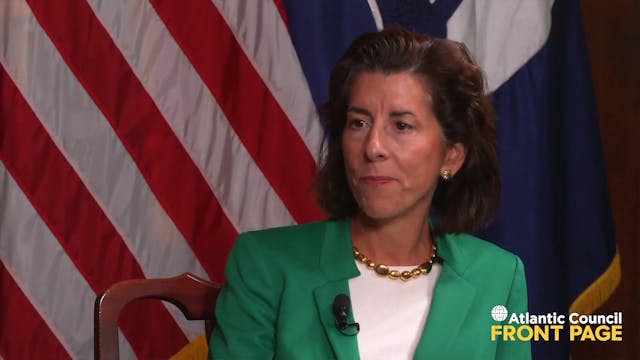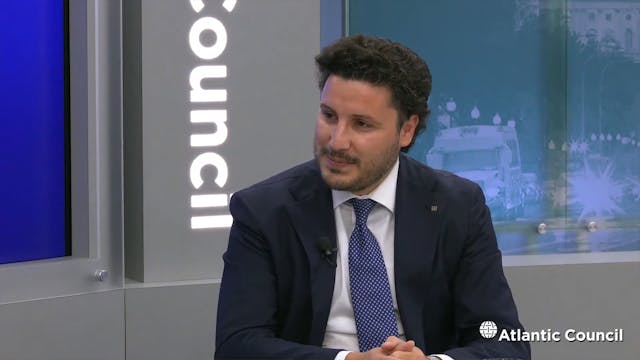Secure supply chains: How can the US succeed against China and Russia?
Politics & Diplomacy
•
50m
SECURE SUPPLY CHAINS AND THE RACE FOR ADVANCED TECHNOLOGIES: HOW CAN THE UNITED STATES SUCCEED AGAINST CHINA AND RUSSIA? - Representative Michael McCaul (R-TX), lead Republican of the House Foreign Affairs Committee, joined the Atlantic Council for a conversation on China, securing supply chains, and the race for advanced technologies. Rep. McCaul was an author of the recently passed CHIPS for America Act, and has been a leading voice on supply chain dependencies involving China.
With the world entering an era of strategic competition, the United States and its allies have become dependent on China and Russia across a range of critical economic sectors, from pharmaceuticals and lithium ion batteries to energy and rare earth minerals. Moscow and Beijing look to use their economic leverage to coerce vulnerable democracies to accede to their political demands. At the same time, China is pursuing a systematic effort to win the race for advanced technologies, and has invested heavily in research and development in advanced technologies, from AI to quantum computing to hypersonic missiles.How can the United States and its allies address these critical challenges? Are new strategies or alliances needed on trade or technology? Does the US need to strengthen export controls with respect to China? How can the democratic world succeed in the growing strategic competition with autocratic rivals?
This was the first in a series of Scowcroft Center and Global China Hub events to engage policymakers on a bipartisan basis on issues relating to secure supply chains, technology competition, and related challenges posed by China and Russia.
The Scowcroft Center released two reports related to these topics. The first, "A Democratic Trade Partnership: Ally Shoring to Counter Coercion and Secure Supply Chains," proposes an integrated and systematic framework for the United States and its allies and partners to coordinate on economic challenges posed by revisionist autocracies and foster free, fair, and secure trade. This report is co-authored by Ash Jain and Matthew Kroenig, with Marianne Schneider-Petsinger.
The second report, "Toward a Democratic Technology Alliance: An Innovation Edge that Favors Freedom," proposes a new entity for cooperation that would ensure that the free world prevails in the race for advanced technologies by jointly investing in innovation, countering unfair practices, and developing rules and norms consistent with democratic values. This report is co-authored by Ash Jain and Matthew Kroenig.
ORIGINAL AIRDATE: 10/3/22
Up Next in Politics & Diplomacy
-
US Secretary of Commerce Gina Raimondo
A CONVERSATION WITH US SECRETARY OF COMMERCE GINA RAIMONDO - The Global Tech Security Commission (GTSC)—a joint partnership between the Atlantic Council’s Global China Hub and Krach Institute for Tech Diplomacy at Purdue—hosted a conversation with the US Secretary of Commerce Gina Raimondo, on Se...
-
A surge in crackdowns across Iran
A SURGE IN CRACKDOWNS ACROSS IRAN - The Atlantic Council’s Middle East Programs and Human Rights Activists’ (in Iran) hosted a discussion about the surge in crackdowns across Iran.
Just over a year into Ebrahim Raisi’s presidency, the human rights situation in the Islamic Republic standed grimm... -
Dritan Abazović, prime minister of Mo...
FIRESIDE CONVERSATION WITH DRITAN ABAZOVIĆ, PRIME MINISTER OF MONTENEGRO - The Atlantic Council’s Europe Center hosted a fireside conversation with H.E. Dritan Abazović, Prime Minister of Montenegro. The Prime Minister discussed the fight against corruption and organized crime in Montenegro; West...



